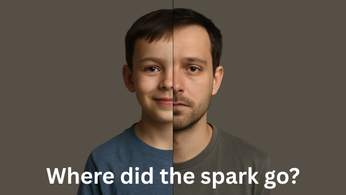
Early Decision or Early Duped?
A case against elite US universities that could reshape how families approach the college game.
If you’ve ever thought
"Hmmm, let’s apply early to get our kid into their dream school”…
…you might want to pour yourself a coffee for this one.
According to an August 8, 2025 filing in Boston federal court, 32 of America’s fanciest universities, including Columbia, Duke, Penn, Northwestern, UChicago, Johns Hopkins, and a bunch of others your aunt loves to name-drop, just got slapped with a lawsuit.
The allegation?
They’ve been secretly working together to keep tuition high using the early decision (ED) system.
Quick refresher: What is Early Decision?
Early Decision (ED) is essentially "College Admissions Fast Track":
- Apply early.
- Attend if admitted (binding).
- Enjoy a statistically better shot at getting in.
Sounds amazing, right?
But here's the catch:
You’re locked in before you ever see the bill.
No price shopping. No negotiating. Not even, “Let’s wait to see what Yale offers.”
For wealthy families, no big deal.
For everyone else? It’s like buying a house without knowing the price tag.
The Lawsuit Tea
The plaintiffs (former Wesleyan students) allege that:
Schools had a “gentleman’s agreement” not to poach each other’s ED admits.
This reduced competition, allowing colleges to keep tuition higher and offer less aid. The practice may violate U.S. antitrust laws.
If true, it means the “advantage” of early decision comes at a steep cost, not just financially, but in fairness.
Who’s Named in the Lawsuit?
The list of defendant institutions goes well beyond the Ivy League, encompassing a group of elite liberal arts colleges and private universities, such as:
- Columbia University
- Duke University
- University of Pennsylvania
- Amherst College
- Northwestern University
- Vassar College
- Wesleyan University
- University of Chicago
- Johns Hopkins University
- Plus, the Consortium on Financing Higher Education (COFHE), accused of facilitating coordination via policy sharing.
Why This is a Matter for ALL Parents (US & Otherwise)
For international families:
ED removes your leverage to compare costs. You’re committing before knowing the true price tag in a system already tilted toward those who can pay full freight.
For US families:
Middle- and low-income students face the same trap. While ED can improve chances of admission, it rewards those who can afford uncertainty, and squeezes out those who can’t gamble with college affordability.
In both cases, the price of a better shot is giving up the ability to negotiate.
What’s at Stake if They Lose
If the plaintiffs prevail, we might get:
- Tuition overcharged as refunds or damages (cha-ching!)
- A ban on binding Early Decision (as we know it!) nationwide
- Financial aid offers before you enroll (crazy, right?).
This could be the most significant change in selective admissions in generations, expanding access for students from broader circumstances.
The Bigger Picture
The lawsuit arrives on the heels of a Supreme Court decision against race-conscious admissions, increasing pressure on institutions to be more equitable and transparent in their screening process for potential students.
For intentional parents, the takeaway is clear:
- Scrutinize ED commitments before applying.
- Demand detailed, upfront aid information.
- Remember that “early” is not always an advantage, especially if it means paying more for the same education.
Join the conversation
At GiftedTalented.com, we’re tracking this case closely. If you’re navigating U.S. admissions — or considering early decision — we want to hear your story.
Reply to this Dispatch or join the United Parents private community and coalition to share your insights, ask questions, and connect with families facing the same decisions. Together, we can push for a college admissions system that works for all of our kids.
GiftedTalented.com
The world's fastest growing gifted & talented community








